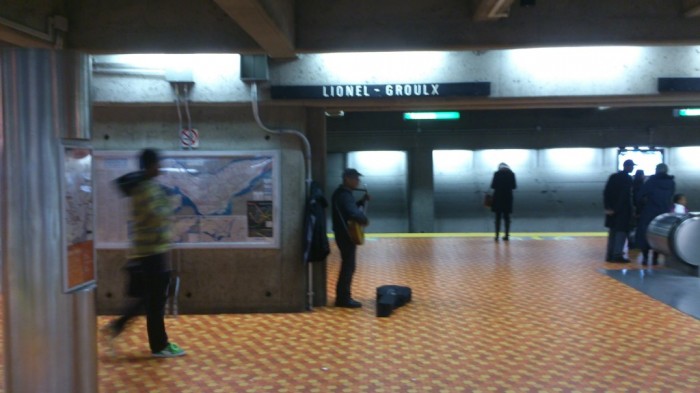During the school year, students in McGill’s Shulich School of Music seldom take a break from rehearsing and performing. Finding themselves unoccupied after the chaos of the school year, Rebecca Jacobson and McKenna Glorioso, both U3 Violin Performance in McGill’s Schulich School of Music, seized the opportunity to test the waters in the Montreal busking scene.
Although not an uncommon move for musicians in their position, playing in such an exposed atmosphere can be daunting for anyone; however, Jacobson and Glorioso feel that their past experience had prepared them for the task.
“I’ve [been busking] since I was, like, five,” Jacobson recalled. “When I first started playing, [my teacher] would have all of her students go at Christmas time and play Christmas carols and raise money for the pregnant women’s shelter in San Francisco […] It sounded really bad, but we were so cute, so we made so much money.”
While Glorioso does not have the same experience busking on sidewalks, she finds it similar to other performance jobs she has taken on.
“I guess this is my first time busking, but it doesn’t feel that different from other weird gigs I’ve done before,” Glorioso said. “It doesn’t feel very different from playing in the back of holiday parties or things like that.”
Playing on the streets has also provided Jacobson and Glorioso a reprieve from the typical formality of classical performance. While formal concert halls maintain a distance between performers and their audience, busking breaks down this barrier and allows for a unique connection between the two.
“It's been super great to be able to connect with strangers in a way we usually can't,” Glorioso said. “Most of the time we perform, we're dressed formally and standing on a stage, so it's pretty incredible to see visceral emotional reactions from people standing three feet away from us.”
After finding their bearings in the world of Montreal street performance, Jacobson and Glorioso learned that their popularity and financial success on any given day was directly correlated to the content of their set list.
“[It’s important to] cater to your audience,” Jacobson said. “You need to be in tune with what people like to hear, and sometimes you need to make sacrifices, like not playing the thing that you want to play.”
Jacobson and Glorioso have found unique success in playing songs that are famous and easily recognizable by the masses. Johann Pachelbel’s Canon in D Major, for example, is typically a crowd favorite.
“Everyone in the world knows that piece,” Jacobson said. “It’s just the bane of every classical musician’s existence, but people respond to what they recognize.”
Jacobson and Glorioso have also found that their own energy and enthusiasm affect the size and attentiveness of the crowd they bring in.
“[Busking has] made me think a lot about how to connect with an audience and what draws people in,” Glorioso said. “There’s a noticeable difference in the overall mood and the reactions we get from people when [Jacobson] and I are obviously having a good time or getting really into it.”
While the majority of audience feedback Glorioso and Jacobson have received has been positive, they have received an occasional snipe from a passerby. One notable comment highlighted classism within the world of classical music.
“One guy came up to us and started admonishing us for playing music in the metro because it’s below us,” Jacobson recalled. “[He told us] classical music is above this ‘dirty metro.’”
Like many local street musicians, Jacobson and Glorioso have found the opposite to be true. Many public spaces in Montreal require expensive licenses to perform, preventing tourist-heavy locations from being accessible to musicians who lack the resources to purchase a permit. For this reason, Jacobson and Glorioso have been limited to performing in metro stations.
“I would almost understand him saying you’re taking up the space of people who would need this money,” Glorioso said, adding her analysis to the situation. “I would understand someone saying you can make money somewhere else—but also, we can’t right now [due to permit requirements]. Also, this money is paying for my groceries.”
Jacobson and Glorioso have found that performing classical music on the street creates an equal playing field between Western classical and other genres of music. Contrary to the opinion of their aforementioned passerby, Jacobson and Glorioso consider the fact that classical music is often considered superior to street performance to be one of the advantages to doing it.
“[Busking] puts all types of music in the same place,” Glorioso said. “Western European classical music, hip-hop, folk, and pop musicians are all playing in the same environment, which encourages musical exchange and an atmosphere of mutual learning and respect for everyone's music.”








